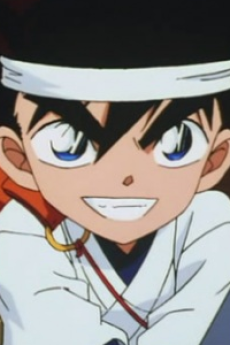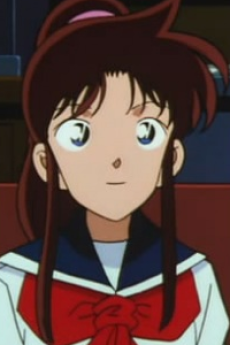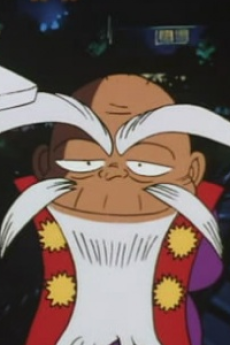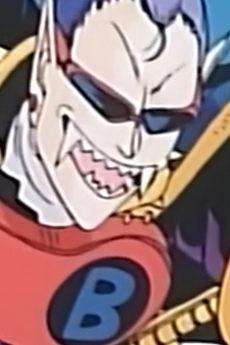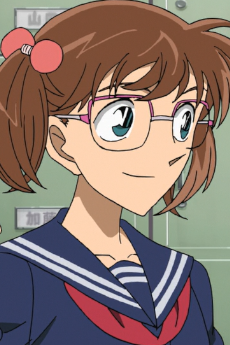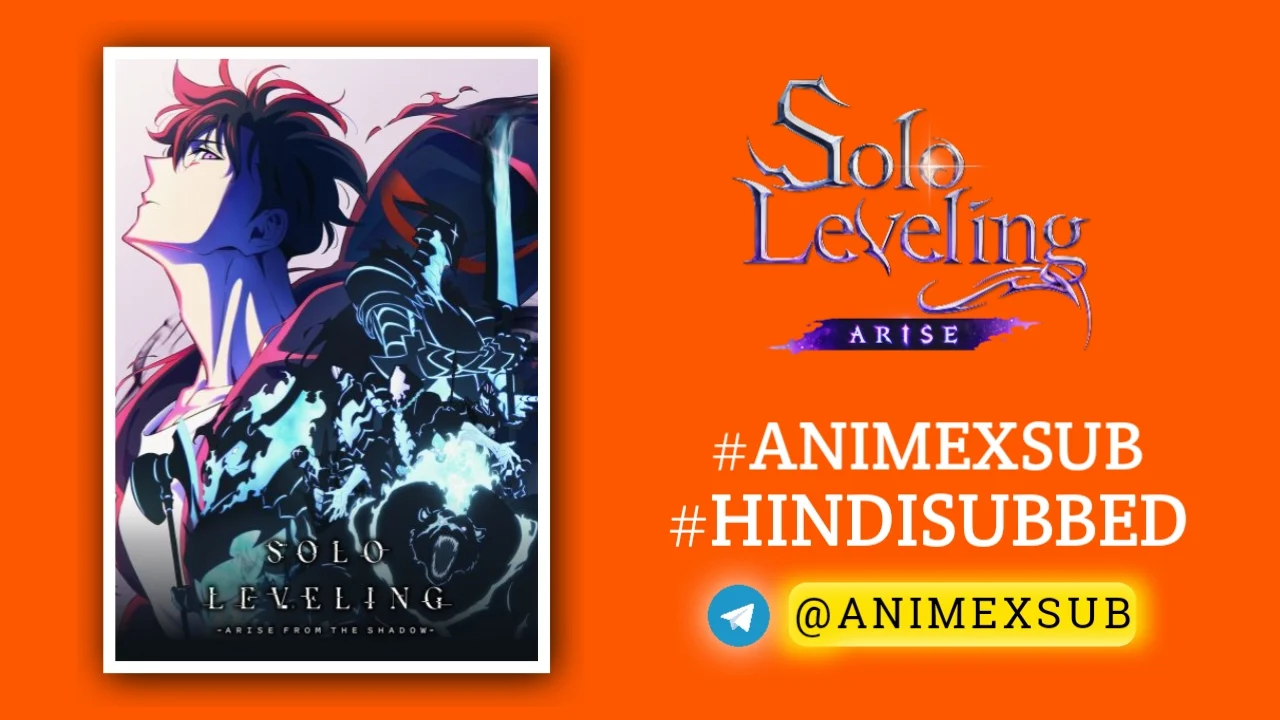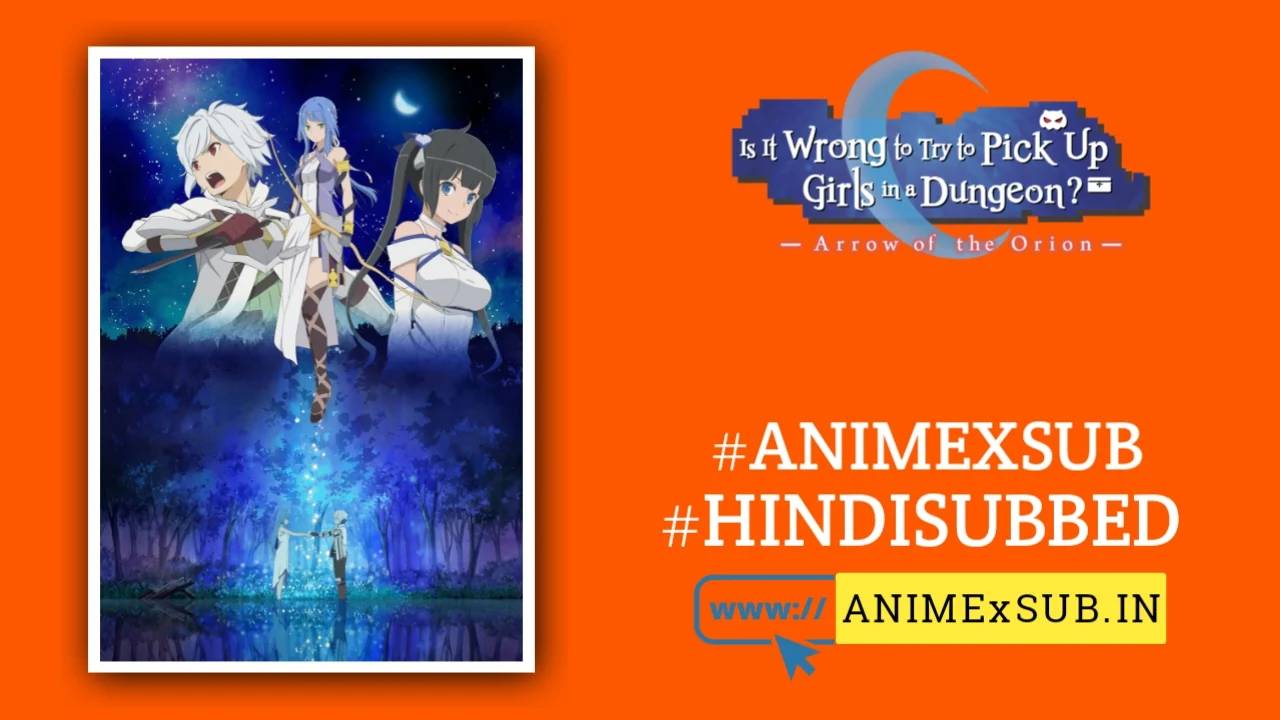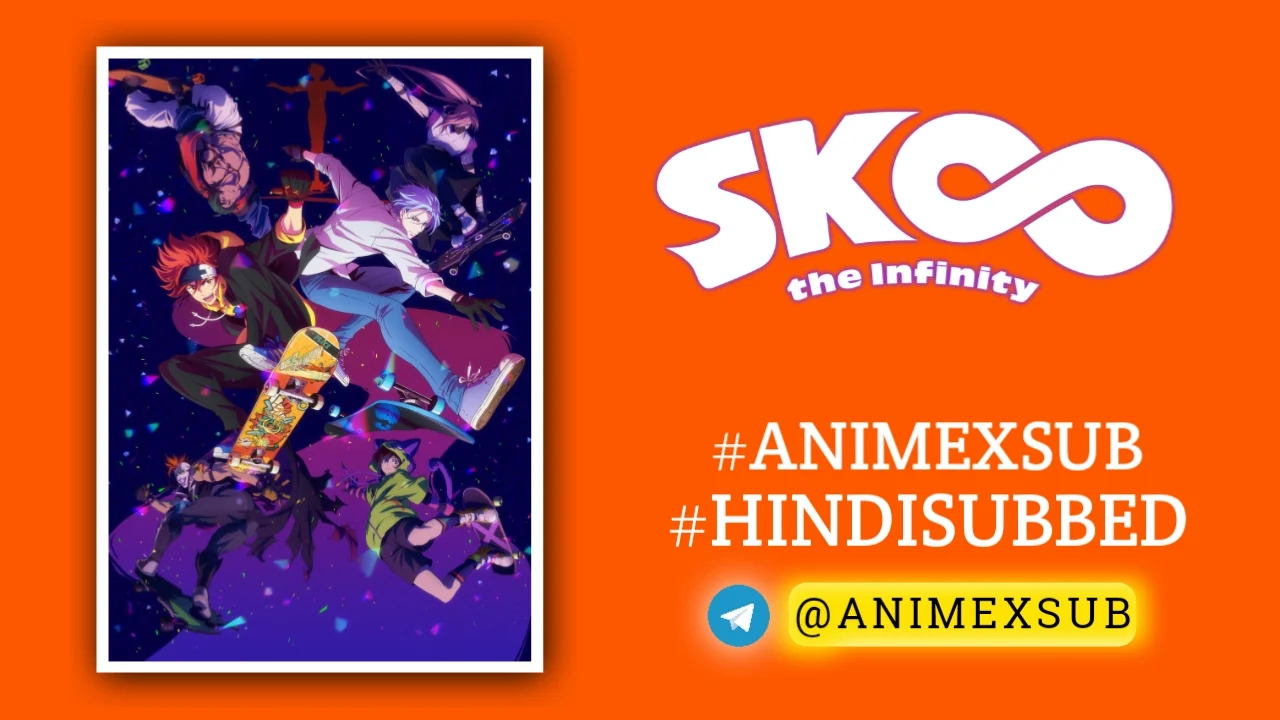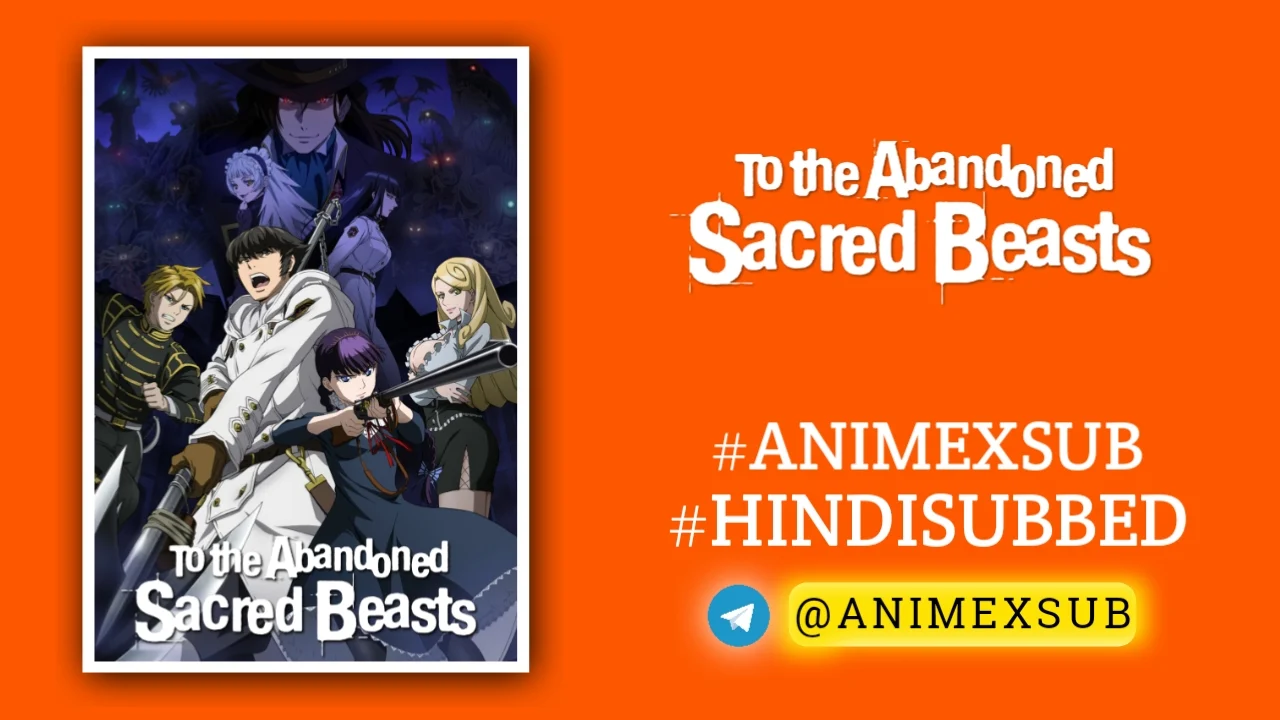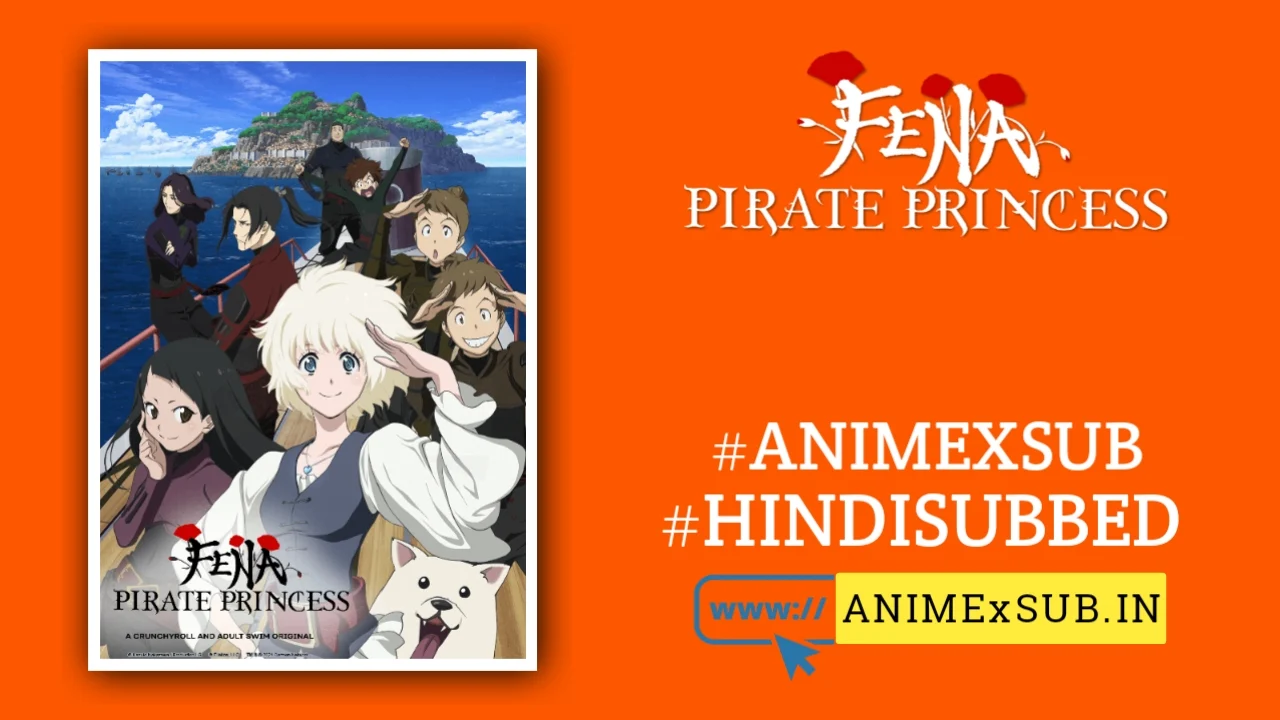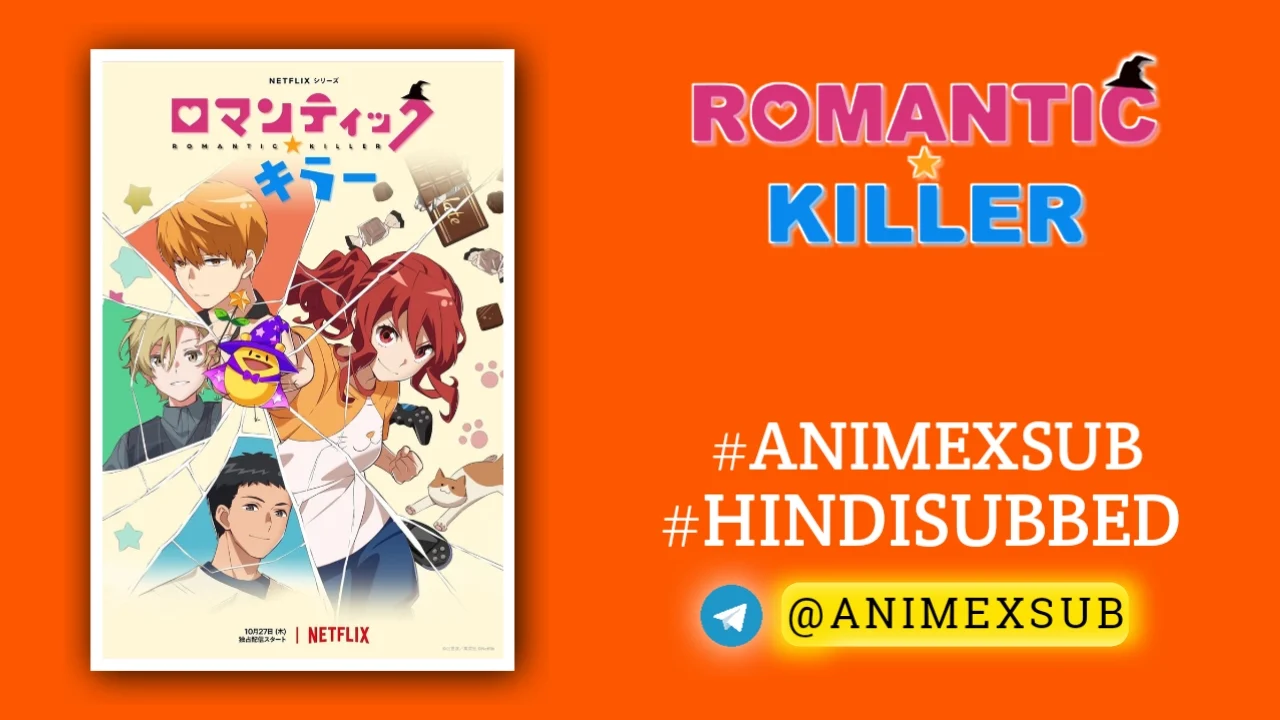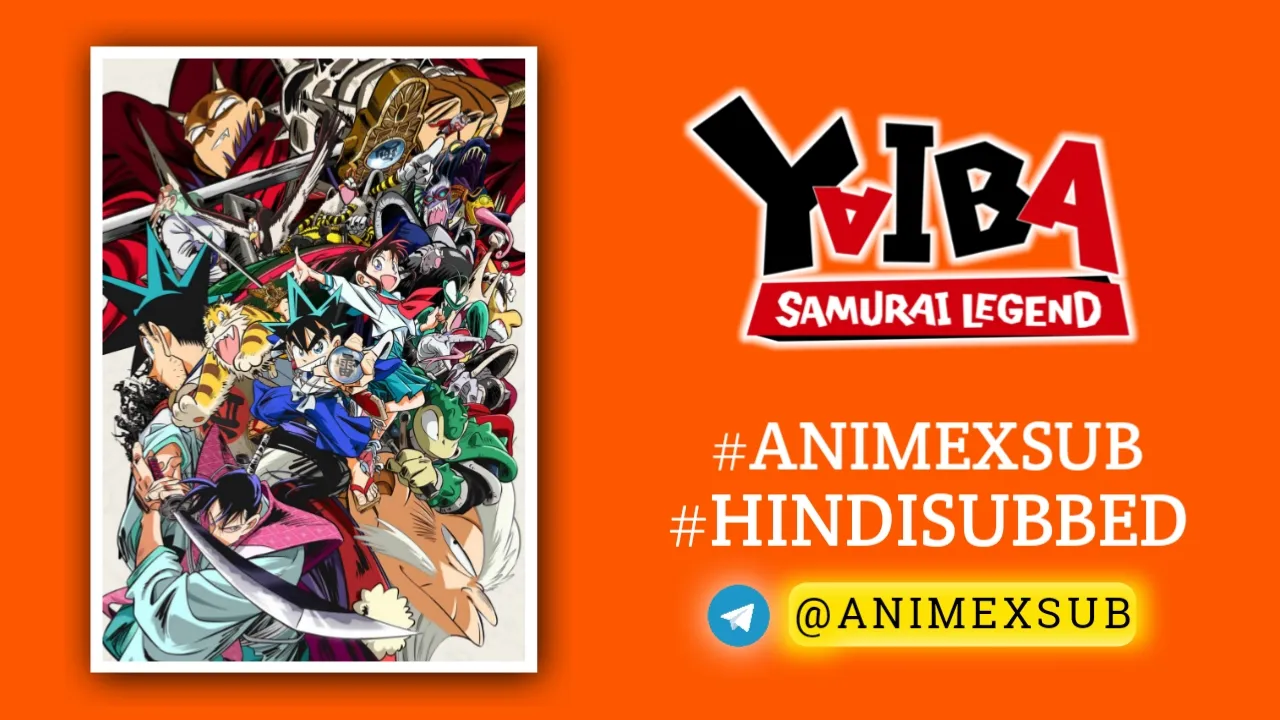
Yaiba: Samurai Legend Season 1 Hindi Subbed [18/??] | Shin Samurai-den Yaiba Hindi sub!!

Shin Samurai-den YAIBA
YAIBA: Samurai LegendSynopsis
The protagonist, Yaiba (Kurogane Yaiba), is a wild samurai boy who trains in the jungle with his father, Kenjuro! By chance, Yaiba returns to Japan, where he meets his rival Takeshi Onimaru, who has the same samurai spirit as Yaiba, in a new training ground. Yaiba is living a life of serious competition, but when Onimaru obtains the “Legendary Demon Sword”, he is on a journey full of spectacle and great adventure...! (Source: Crunchyroll News)
Watch Trailer
Characters
Yaiba: Samurai Legend Season 1 – A Razor-Sharp Blend of Nostalgia and Modern Mastery
Yaiba: Samurai Legend Season 1, which premiered on April 5, 2025, is a vibrant reimagining of Gosho Aoyama’s 1980s manga, brought to life by WIT Studio with a polish that feels both timeless and cutting-edge. This 14-episode run, streaming on Netflix and Hulu, is a thrilling collision of old-school shonen spirit and modern anime craftsmanship. It’s a series that doesn’t just lean into its retro roots but sharpens them into something fresh, flawed, and fiercely compelling. This review dives deep into what makes Yaiba: Samurai Legend a standout, exploring its strengths, stumbles, and unique place in the 2025 anime landscape, without any promotional fluff—just raw analysis.
A Nostalgic Blade with a Modern Edge
At its core, Yaiba: Samurai Legend is a love letter to the shonen anime of the ‘80s and ‘90s, an era defined by brash protagonists, slapstick humor, and unapologetic action. The story follows Yaiba Kurogane, a young samurai raised in the jungle by his father, Kenjuro, with a singular dream: to become the greatest swordsman alive. When he’s thrust into modern-day Japan, Yaiba’s wild energy clashes with urban life, sparking rivalries, friendships, and supernatural battles. The narrative hinges on his rivalry with Takeshi Onimaru, a refined high school swordsman who becomes possessed by a demonic sword, setting the stage for a dynamic that’s equal parts comedic and intense.
What sets this adaptation apart is how it balances reverence for its source material with a modern sensibility. The manga, predating Aoyama’s Detective Conan, is a product of its time—full of exaggerated expressions, fanservice, and straightforward stakes. WIT Studio doesn’t shy away from these elements but refines them, trimming the fat to create a leaner, faster-paced story that respects viewers’ time. The result is a series that feels like a time capsule cracked open and polished to a mirror sheen, with animation and storytelling that elevate the original without losing its chaotic charm.
Visual Spectacle: WIT Studio’s Masterstroke
If there’s one undeniable triumph in Yaiba: Samurai Legend, it’s the animation. WIT Studio, known for Attack on Titan and Vinland Saga, delivers some of the most breathtaking visuals of the 2025 season. Under the direction of chief animation director Yoshimichi Kameda (Mob Psycho 100), every frame pulses with energy. The fight scenes are a particular highlight—each swing of Yaiba’s blade feels weighty, with dynamic camera angles and fluid choreography that make even early skirmishes in episodes 1 and 2 feel like climactic battles. The standout is episode 6, directed by Takeshi Maenami, whose work on One Piece’s Gear 5 fight brings a similar kinetic flair to a showdown that’s as visually inventive as it is narratively pivotal.
Beyond the action, the character acting is a revelation. Yaiba’s exaggerated, almost cartoonish movements—leaping, scheming, and shouting—capture his untamed spirit, while Sayaka Mine’s more reserved body language grounds the story’s emotional beats. The series also experiments with bold stylistic choices, like a striking black-and-white sequence in episode 10 that underscores a moment of narrative weight without feeling gimmicky. The color palette pops with vibrant jungles and sleek cityscapes, blending ‘90s anime aesthetics with modern clarity. Yutaka Yamada’s score, with its thundering drums and haunting strings, amplifies the action and gives quieter moments a surprising depth.
However, the visuals aren’t flawless. Some episodes, particularly in the mid-season stretch (episodes 7-9), lean heavily on static shots during dialogue-heavy scenes, which can feel jarring next to the high-octane fights. This inconsistency doesn’t derail the experience but occasionally reminds you that even WIT’s budget has limits.
Characters: A Double-Edged Sword
The heart of Yaiba lies in its characters, who are both its greatest strength and its most divisive element. Yaiba Kurogane is a polarizing protagonist—a cocky, fight-obsessed kid whose relentless energy can be as endearing as it is grating. Unlike archetypal shonen heroes like Goku, Yaiba’s not just a pure-hearted warrior; he’s a scheming, mischievous punk who sets traps and taunts his rivals into duels. This makes him refreshingly unpredictable but also risks alienating viewers who find his brashness overbearing. By episode 9, however, Yaiba shows subtle signs of growth, questioning his single-minded pursuit of strength after a devastating loss, which adds layers to his character without betraying his core.
Takeshi Onimaru, Yaiba’s rival, is a fascinating foil. His refined swordsmanship and stoic demeanor contrast sharply with Yaiba’s wildness, but his transformation into a demon-possessed antagonist in episode 2 introduces a supernatural edge that keeps the rivalry dynamic. Onimaru’s descent into villainy is handled with surprising nuance, with moments of vulnerability that hint at a deeper struggle. Their clashes, both verbal and physical, are the series’ backbone, crackling with chemistry that feels nostalgic yet fresh.
Sayaka Mine, the main female lead, is where the series stumbles. While her design echoes Detective Conan’s Ran Mouri, her role often feels underwritten. She’s competent and fiery but frequently relegated to reacting to Yaiba’s antics or serving as a damsel in distress, especially in episodes 10-12. The fanservice surrounding her—lingering shots and outdated tropes like Yaiba’s skirt-peeking—feels particularly tone-deaf in 2025, clashing with the show’s otherwise progressive pacing. Secondary characters, like Onimaru’s henchmen and the quirky frog samurai Kagetora, add humor but often feel one-dimensional, leaning on ‘80s-style gags that don’t always land.
Story and Themes: Familiar Yet Surprisingly Poignant
The plot of Yaiba: Samurai Legend doesn’t reinvent the shonen wheel, and it doesn’t need to. It’s a straightforward quest narrative: Yaiba seeks to master the samurai way, facing increasingly powerful foes while uncovering mystical secrets tied to Onimaru’s cursed sword. The pacing is a standout, with no filler episodes and a tight focus on advancing the rivalry and supernatural stakes. By episode 14, the season closes with a cliffhanger that teases a larger, darker conflict, leaving viewers hungry for more.
What elevates the story beyond its familiar structure is its understated exploration of growth and rivalry. Yaiba and Onimaru’s dynamic isn’t just about one-upping each other; it’s about two opposing philosophies—instinct versus discipline—learning to coexist. The show also touches on themes of identity and legacy, particularly through Yaiba’s relationship with his father and Onimaru’s struggle with his demonic possession. These moments, while not groundbreaking, are handled with enough emotional weight to give the series a heart that feels earned.
That said, the reliance on ‘80s tropes—slapstick humor, fanservice, and simplistic villain motivations—can feel like a hurdle. The humor, in particular, is hit-or-miss, with gags like the perverted old man in episode 8 feeling more cringeworthy than nostalgic(fragmentary) nostalgic. For fans of classic shonen, this is part of the charm, but others may find it dated.
Reception and Impact: A Sleeper Hit with Room to Grow
Yaiba: Samurai Legend has flown under the radar, overshadowed by flashier 2025 releases, but it’s garnered a dedicated following. On platforms like MyAnimeList, reviews range from enthusiastic praise for its animation and pacing (with scores averaging around 7-8/10) to mixed feelings about its dated humor and simplistic plot. IMDb ratings for individual episodes show a high of 9.2 for episode 11, reflecting standout moments that resonate with viewers. X posts, like one from @Sephirod_ on August 10, 2025, call it “one of the most underrated anime of the year,” citing its “hectic character acting” and “great directing ideas.” Yet, some critics, like AudibleSilence on MyAnimeList, argue it lacks ambition, describing it as “mechanically assembled” and “forgettable” despite its technical prowess.
This divide speaks to Yaiba’s unique position: it’s a niche gem that thrives on nostalgia but doesn’t fully transcend its retro limitations. Its ability to appeal depends on the viewer’s tolerance for old-school shonen quirks balanced against its modern execution “
Why It Stands Out
Yaiba: Samurai Legend Season 1 is a masterclass in blending old and new. It captures the wild, unpolished energy of ‘80s shonen while delivering animation and pacing that feel tailor-made for 2025. It’s not perfect—the fanservice and uneven humor can grate, and some characters feel underdeveloped—but its strengths are undeniable. The rivalry between Yaiba and Onimaru crackles with intensity, the visuals are a feast, and the story strikes a rare balance of comfort and surprise. For those craving a shonen that doesn’t take itself too seriously yet delivers emotional and visual heft, Yaiba is a hidden blade worth unsheathing.
Final Verdict: Yaiba: Samurai Legend Season 1 is a thrilling, flawed gem that wields its nostalgic roots like a katana, cutting through the clutter of modern anime with style and heart. It’s not revolutionary, but it’s a damn good time, and its potential for growth in future seasons makes it one to watch.
